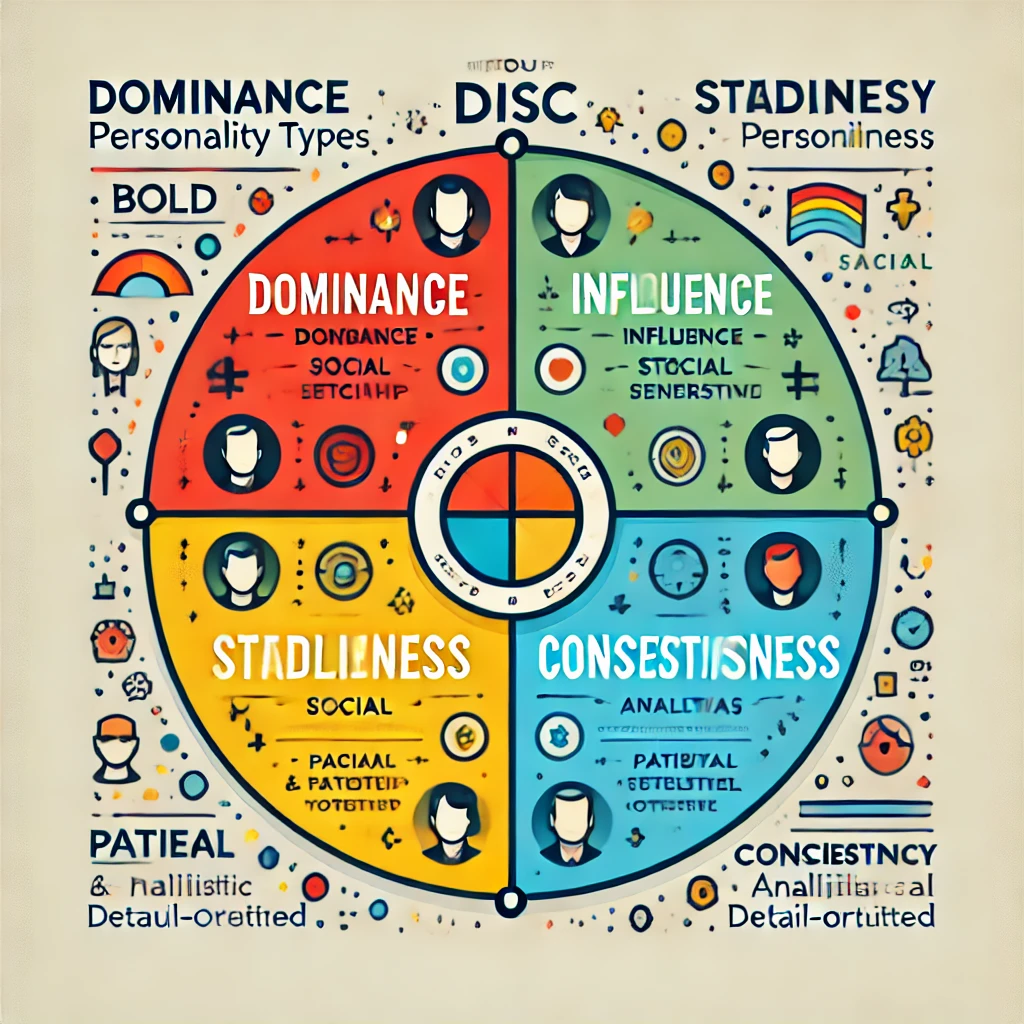Understanding the Four DISC Personality Types: A Comprehensive Guide
Thank you for reading this post, don't forget to subscribe!The DISC personality assessment is a powerful tool designed to help individuals and organizations improve communication, collaboration, and productivity. It categorizes personality traits into four primary types: Dominance (D), Influence (I), Steadiness (S), and Conscientiousness (C). Each type has unique characteristics, strengths, and challenges. Understanding these personality types can enhance interpersonal relationships, workplace dynamics, and leadership effectiveness.
The Four DISC Personality Types
1. Dominance (D)
Individuals with a Dominant personality are assertive, goal-oriented, and decisive. They thrive in competitive environments and enjoy taking charge of situations.
Key Traits:
- Confident and direct
- Results-driven
- Risk-takers
- Strong-willed
Strengths:
- Excellent leadership skills
- Quick decision-making ability
- Ability to handle challenges head-on
Challenges:
- May come across as aggressive or impatient
- Tendency to overlook details
- Struggles with collaboration and delegation
2. Influence (I)
Influential personalities are enthusiastic, outgoing, and persuasive. They enjoy social interactions and thrive in environments that allow them to connect with others.
Key Traits:
- Charismatic and energetic
- Optimistic and inspiring
- Emotionally expressive
- People-oriented
Strengths:
- Strong communication skills
- Ability to motivate and inspire others
- Builds relationships quickly
Challenges:
- May struggle with organization and follow-through
- Can be overly optimistic
- Tends to avoid conflict
3. Steadiness (S)
Steady individuals are dependable, patient, and cooperative. They value stability and are excellent team players, making them integral to maintaining harmony in any group setting.
Key Traits:
- Loyal and reliable
- Supportive and empathetic
- Prefers consistency and routine
- Great listener
Strengths:
- Strong team-oriented mindset
- Patient and adaptable
- Good at resolving conflicts peacefully
Challenges:
- May resist change or new challenges
- Can be overly accommodating
- Struggles with assertiveness
4. Conscientiousness (C)
Conscientious individuals are analytical, detail-oriented, and methodical. They prioritize accuracy and structure, making them excellent problem solvers.
Key Traits:
- Logical and objective
- Highly organized
- Fact-driven and precise
- Perfectionist tendencies
Strengths:
- Excellent problem-solving skills
- Attention to detail and accuracy
- High level of discipline and focus
Challenges:
- Can be overly critical or perfectionistic
- Tends to overanalyze situations
- May struggle with flexibility and spontaneity
How to Apply DISC Personality Insights
- In Leadership: Understanding the DISC types allows leaders to tailor their approach based on team members’ personalities, leading to more effective communication and motivation strategies.
- In Team Collaboration: Recognizing different working styles helps create a more cohesive and productive team environment.
- In Personal Development: Individuals can leverage their DISC profile to enhance their strengths and work on areas that need improvement.
- In Conflict Resolution: Knowing how each personality type handles conflict can help mediate disputes and foster better understanding among colleagues.
Conclusion
The DISC assessment is an invaluable tool for personal and professional growth. By understanding the four personality types—Dominance, Influence, Steadiness, and Conscientiousness—you can improve relationships, enhance teamwork, and become a more effective leader. Whether you’re navigating workplace dynamics or personal interactions, applying DISC insights can lead to better communication and a more harmonious environment.
